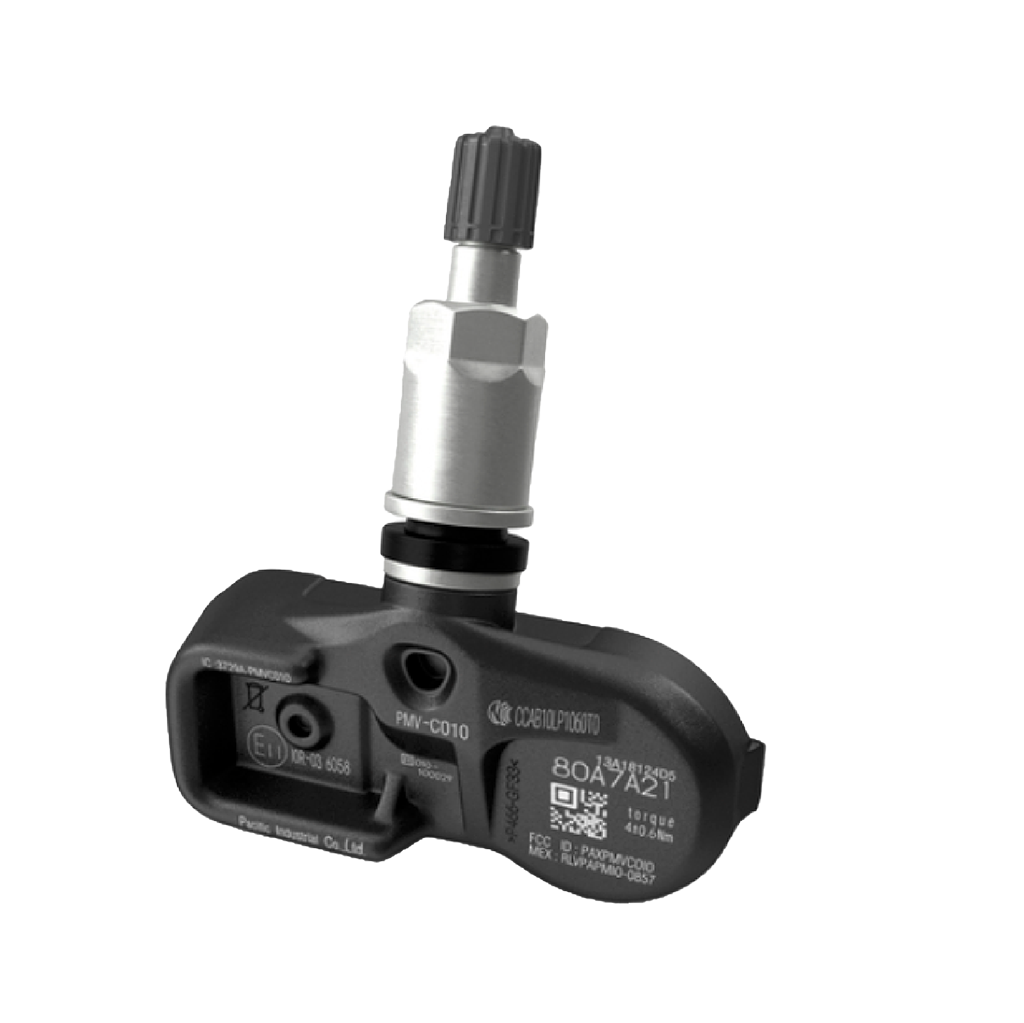Ensure your safety with accurate tire pressure monitoring—book your TPMS service today!
TPMS Service
Keep your tires in top condition with our professional TPMS services. A properly functioning TPMS not only helps extend tire life but also improves vehicle handling, decreases braking distances, and increases fuel efficiency. Schedule your TPMS check today to ensure your system is accurately monitoring tire pressure and alerting you to any potential safety issues.
Our TPMS Services: Maintaining Optimal Tire Performance and Safety
Expert TPMS Diagnostics & Repair
Drive with confidence knowing your Tire Pressure Monitoring System (TPMS) is in expert hands with our specialized diagnostics and repair services. Our skilled technicians utilize advanced tools and techniques to accurately diagnose and swiftly resolve TPMS issues. Trust us to keep your vehicle's tire pressure optimized for safety and performance on the road.
Quality Service with Quality Parts
We use high-quality, OEM-approved sensors and parts for all TPMS repairs and replacements to maintain the integrity and reliability of your vehicle’s monitoring system.
Quick & Efficient TPMS Services
We value your time and ensure that our TPMS services are as efficient as possible. Quick diagnostics and repairs mean you can have your system checked and any necessary adjustments made in no time, minimizing your vehicle’s downtime.
Comprehensive TPMS Services
Explore our TPMS services designed to ensure your safety and your vehicle's optimal performance:
Standard TPMS Maintenance:
Pressure Check and Adjustment: Regular checks of tire pressure and adjustment to correct levels according to your vehicle’s recommendations.
Sensor Battery Check: Ensuring that sensor batteries are functioning correctly and replacing them as needed.
Complete System Overhaul: In-depth overhaul of the TPMS for vehicles exhibiting recurrent issues or following significant tire or wheel modifications.
Custom TPMS Configuration: Custom configurations for specialized applications or after-market wheels and tires that require unique calibration settings.
TPMS Service FAQ
What is TPMS, and how does it work?
TPMS stands for Tire Pressure Monitoring System. It is an electronic system that monitors the air pressure inside the tires of a vehicle. TPMS uses sensors mounted in each tire or the vehicle's wheel assembly to measure tire pressure. If the pressure drops below a certain threshold, the system alerts the driver through a warning light on the dashboard.Why is TPMS important?
Maintaining proper tire pressure is crucial for vehicle safety, performance, and fuel efficiency. Underinflated tires can lead to decreased traction, increased stopping distances, tire wear, and the risk of blowouts. TPMS helps drivers stay informed about their tire pressure levels, allowing them to take corrective action promptly.What are the different types of TPMS?
There are two main types of TPMS: direct TPMS and indirect TPMS. Direct TPMS uses sensors mounted inside each tire to directly measure tire pressure and transmit data to the vehicle's onboard computer. Indirect TPMS relies on the vehicle's anti-lock brake system (ABS) to monitor tire rotation speeds and detect changes in tire pressure indirectly.How do I know if my vehicle is equipped with TPMS?
Most modern vehicles manufactured after 2007 are equipped with TPMS as a standard safety feature. You can check your vehicle's owner's manual or look for the TPMS warning light on the dashboard when you start the vehicle. If you see a TPMS symbol illuminated, your vehicle is equipped with TPMS.What should I do if the TPMS warning light comes on?
If the TPMS warning light comes on, it indicates that one or more tires may be underinflated. Pull over to a safe location and check the tire pressure using a tire pressure gauge. Inflate the tires to the recommended pressure levels as indicated on the tire placard located on the driver's side door jamb or in the owner's manual. If the light persists after inflating the tires, there may be a malfunction in the TPMS system, and it should be inspected by a professional technician.Can TPMS sensors be replaced if they are damaged or malfunctioning?
Yes, TPMS sensors can be replaced if they are damaged or malfunctioning. However, it's essential to ensure that the replacement sensors are compatible with your vehicle's make and model. Professional installation may be required to program the new sensors to the vehicle's TPMS system.Do TPMS sensors need to be serviced or recalibrated?
TPMS sensors do not typically require routine maintenance. However, if you replace your tires or wheels, it's advisable to have the TPMS sensors inspected and serviced to ensure they are functioning correctly. Some vehicles may require TPMS sensor recalibration after tire rotations or replacements.Can aftermarket wheels or tires affect TPMS functionality?
Yes, aftermarket wheels or tires can affect TPMS functionality if they are not compatible with the vehicle's TPMS system. It's essential to use TPMS-compatible wheels and tires when replacing or upgrading your vehicle's tires and wheels to ensure proper TPMS operation.How accurate is TPMS in measuring tire pressure?
TPMS systems are designed to provide accurate tire pressure readings within a certain range. However, it's essential to regularly check tire pressure manually using a tire pressure gauge, as TPMS readings may vary slightly or be affected by factors such as temperature changes and driving conditions.Can TPMS help improve fuel efficiency?
Maintaining proper tire pressure with the help of TPMS can contribute to improved fuel efficiency by reducing rolling resistance and minimizing energy loss due to tire underinflation. Properly inflated tires can help optimize fuel economy and reduce vehicle emissions.
Complete Payson Auto Repair Auto Maintenance and Repair Services
Discover our reliable check engine light diagnosis services nearby and take action to resolve any engine issues. Don’t ignore your check engine light—early diagnosis can save you time and money. Book your comprehensive engine check with us today and drive with confidence. Your vehicle’s performance and safety are our top concerns—act now!


